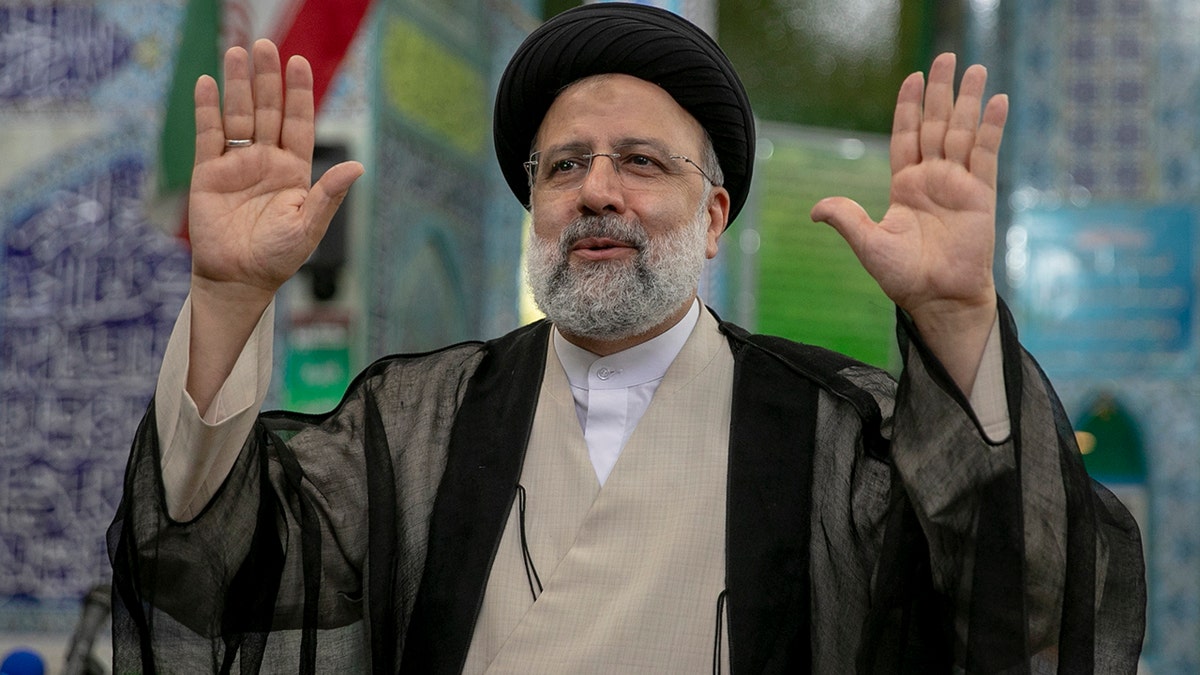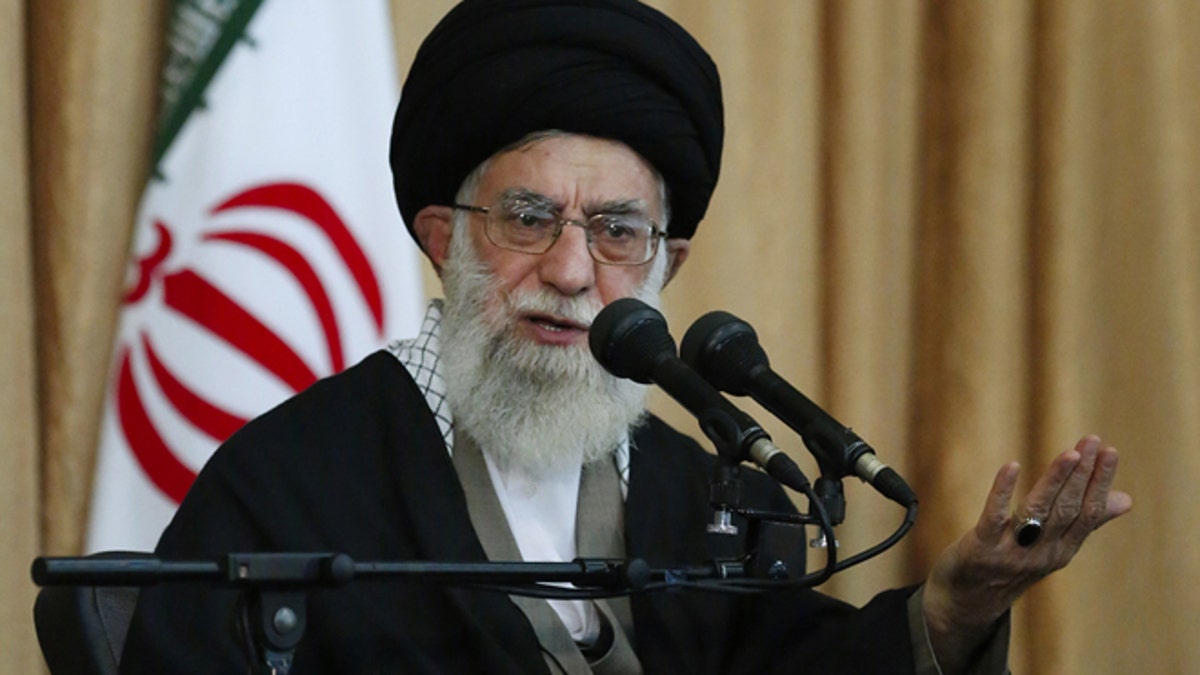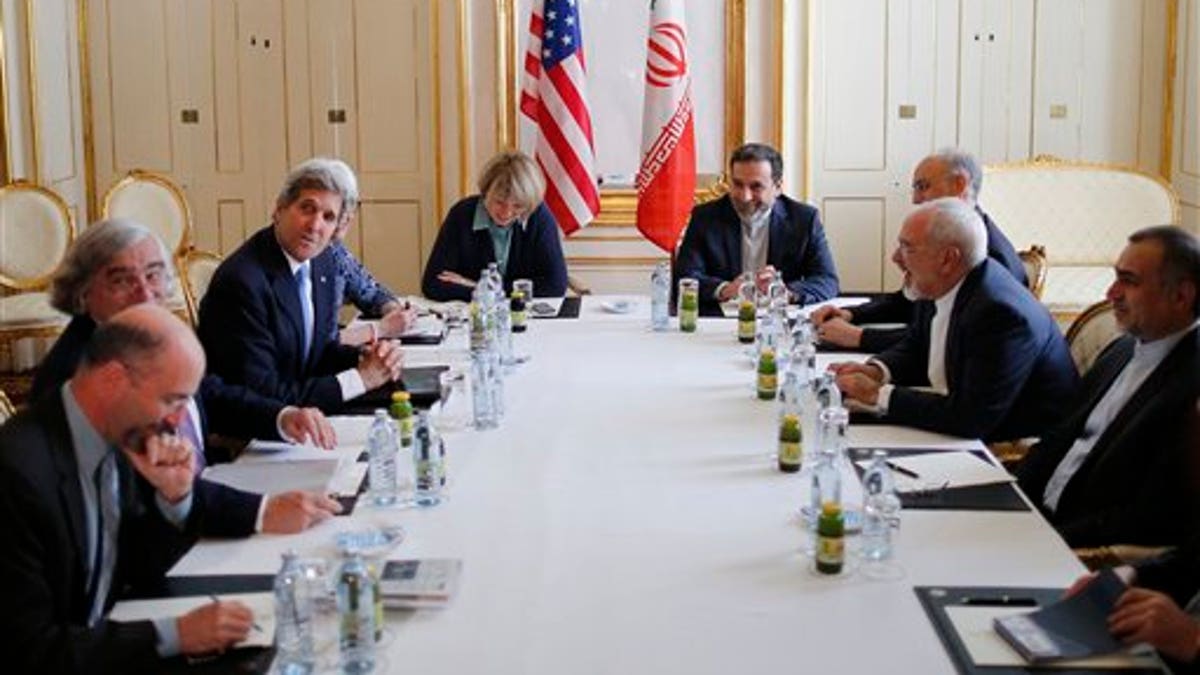Israeli Knesset member Nir Barkat warns Israel may strike Iran if necessary
Israeli Knesset member Nir Barkat discusses Iran nuclear deal in interview with Fox News Digital
The Bloomberg Opinion editors published an editorial Monday that argued the United States must quickly alter its policy toward Iran's nuclear program. They argued it is time for the Biden administration to "act as though" an agreement will not be reached and to curtail Iran's oil exports, a major source of revenue for the country.
"Although the deal may not be dead just yet, the US should act as though it is," the editors wrote.
They noted that despite signs of progress last month, Iran decided to demand more concessions from the United States, perhaps emboldened by growing energy crisis across the globe.

Ebrahim Raisi, a candidate in Iran's presidential elections waves to the media after casting his vote at a polling station on June 18, 2021, on the day of the Islamic republic's presidential election. (Photo by Majid Saeedi/Getty Images)
"Months-long talks appeared close to success in late August before Iran pressed for more last-minute concessions, perhaps calculating that its leverage would increase this winter as Western nations grow desperate to add more oil to global markets," they wrote.
Some investing experts and Republican elected officials have warned large financial institutions' environmental, social, governance (ESG) policies and government regulation have led to dire energy shortages, emboldening America's adversaries abroad.
Kyle Bass, a prominent financier, warned that ESG policies "are going to end up starving the poor children in the world and killing many of them" during an appearance on CNBC in August.
EUROPEAN GOVERNMENTS, CITIZENS GEARING UP FOR WORSENING ENERGY CRISIS

There's a dispute about whether Supreme Leader Ayatollah Ali Khamenei ever gave a fatwa, or religious edict, forbidding the pursuit of nuclear weapons. (AP Photo/Office of the Iranian Supreme Leader)
The Bloomberg editors warned that with regard to curtailing Iran's nuclear development, "further delay is risky."
"The IAEA [International Atomic Energy Agency] estimates that Iran now has more than enough uranium enriched to 60% — a short step from weapons-grade — to build a nuclear weapon, and can add to that stockpile relatively quickly," they wrote.
The editorial also noted that Iran has blocked international inspectors from monitoring its facilities.

U.S. Secretary of State John Kerry, 3rd left, meets with Iranian Foreign Minister Javad Zarif, 2nd right, at an hotel in Vienna, Wednesday July 1, 2015.
"That raises the possibility Iran might stash away dozens of the sophisticated devices and continue enriching secretly even if the deal is revived," they warned. "The agency has warned that the longer its inspectors are cut off, the harder it will be to certify that Iran’s nuclear activities are peaceful."
The editorial called on President Biden to cut off Iran's oil sales to China, which is helping to finance Iran's nuclear program.
"President Joe Biden’s administration should thus work harder to close sanctions loopholes that have allowed Iran to continue to sell millions of barrels of oil, primarily to China," the editors wrote.
On Friday, Secretary of State Antony Blinken said that Iran's most recent demands "takes us backwards".
"We are not about to agree to a deal that doesn't meet our bottom-line requirements," Blinken said.











































